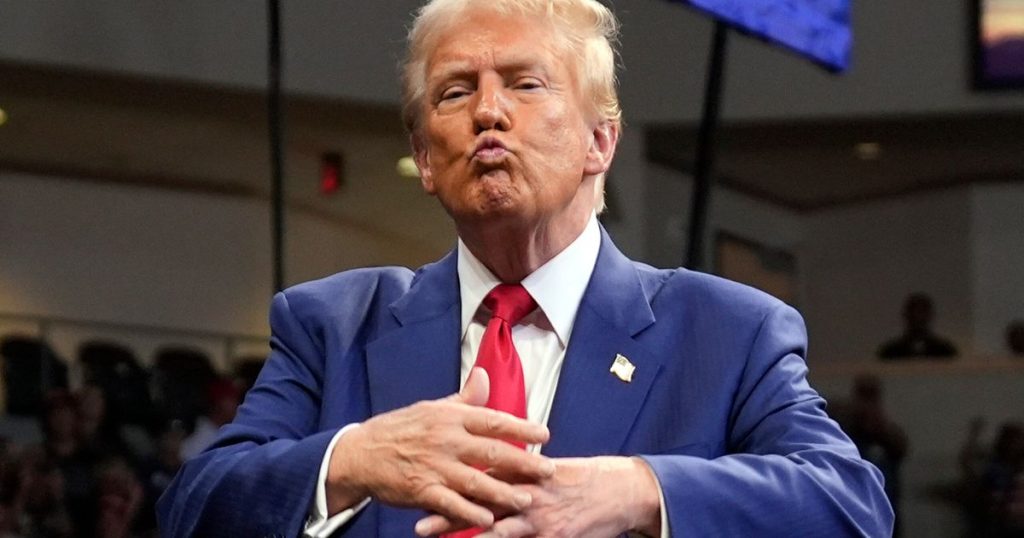Former President Donald Trump faced criticism from critics after telling his supporters to vote on the wrong date. This incident occurred during a rally where Trump encouraged attendees to vote on November 28th, despite the actual election day being on November 3rd. Critics argued that such misinformation could potentially disenfranchise voters and disrupt the democratic process. They accused Trump of spreading false information and urged the public to be vigilant in verifying voting information to ensure their voices were heard.
Trump’s supporters defended his remarks, claiming that they understood his message and were not misled by his mistake. They argued that Trump’s intentions were not malicious and that he simply made a mistake in his speech. Supporters also pointed out that voting dates were well known and easily accessible information, so any confusion caused by Trump’s statements could easily be rectified by checking official sources. Despite this defense, critics remained skeptical of Trump’s motives and continued to criticize him for spreading misinformation.
This incident reignited concerns about the role of misinformation in politics and highlighted the need for accurate and reliable information in elections. Critics warned that false information, whether intentional or accidental, could have serious consequences for the democratic process. They called for increased transparency and accountability from political leaders to ensure that voters were properly informed and able to participate in elections without being misled. The incident with Trump served as a reminder of the importance of fact-checking and verifying information from trusted sources.
The incident also raised questions about the influence of leaders on their supporters and the responsibility they have to provide accurate information. Critics argued that political leaders, especially former presidents like Trump, had a duty to ensure that their statements were factually correct and did not mislead the public. They called for leaders to be held accountable for any misinformation they spread and to take steps to rectify any mistakes made. This incident with Trump served as a cautionary tale about the power and responsibility that comes with being a public figure.
In response to the criticism, Trump issued a statement clarifying his remarks and acknowledging his mistake. He apologized for any confusion he may have caused and reiterated the correct election date for his supporters. Despite this apology, critics remained skeptical of Trump’s motives and emphasized the need for leaders to be held accountable for the information they provide to the public. They called for increased transparency and caution when it comes to election information to prevent any future misinformation from affecting voter turnout or confidence in the democratic process.
Overall, the incident with Trump telling his supporters to vote on the wrong date sparked a debate about the spread of misinformation in politics and the responsibility of leaders to provide accurate information. Critics called for increased transparency and accountability to ensure that voters were properly informed and able to participate in elections without being misled. The incident served as a reminder of the importance of fact-checking and verifying information from trusted sources, as well as the influence that political leaders have on their supporters. By addressing issues of misinformation and holding leaders accountable for their statements, steps can be taken to protect the integrity of the democratic process and ensure that all voices are heard.


